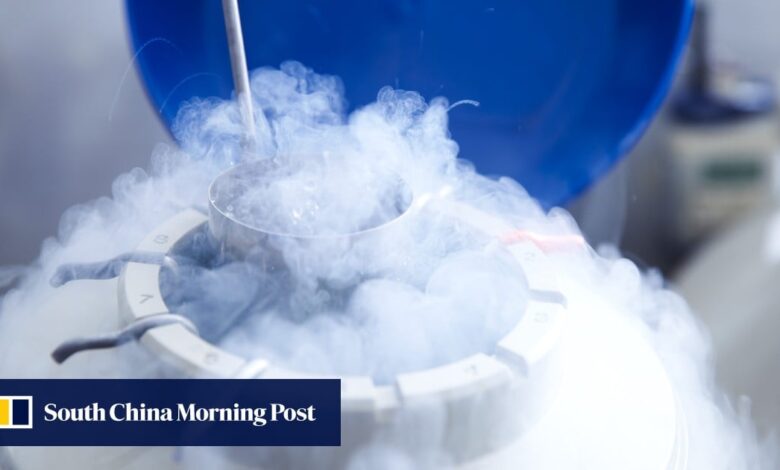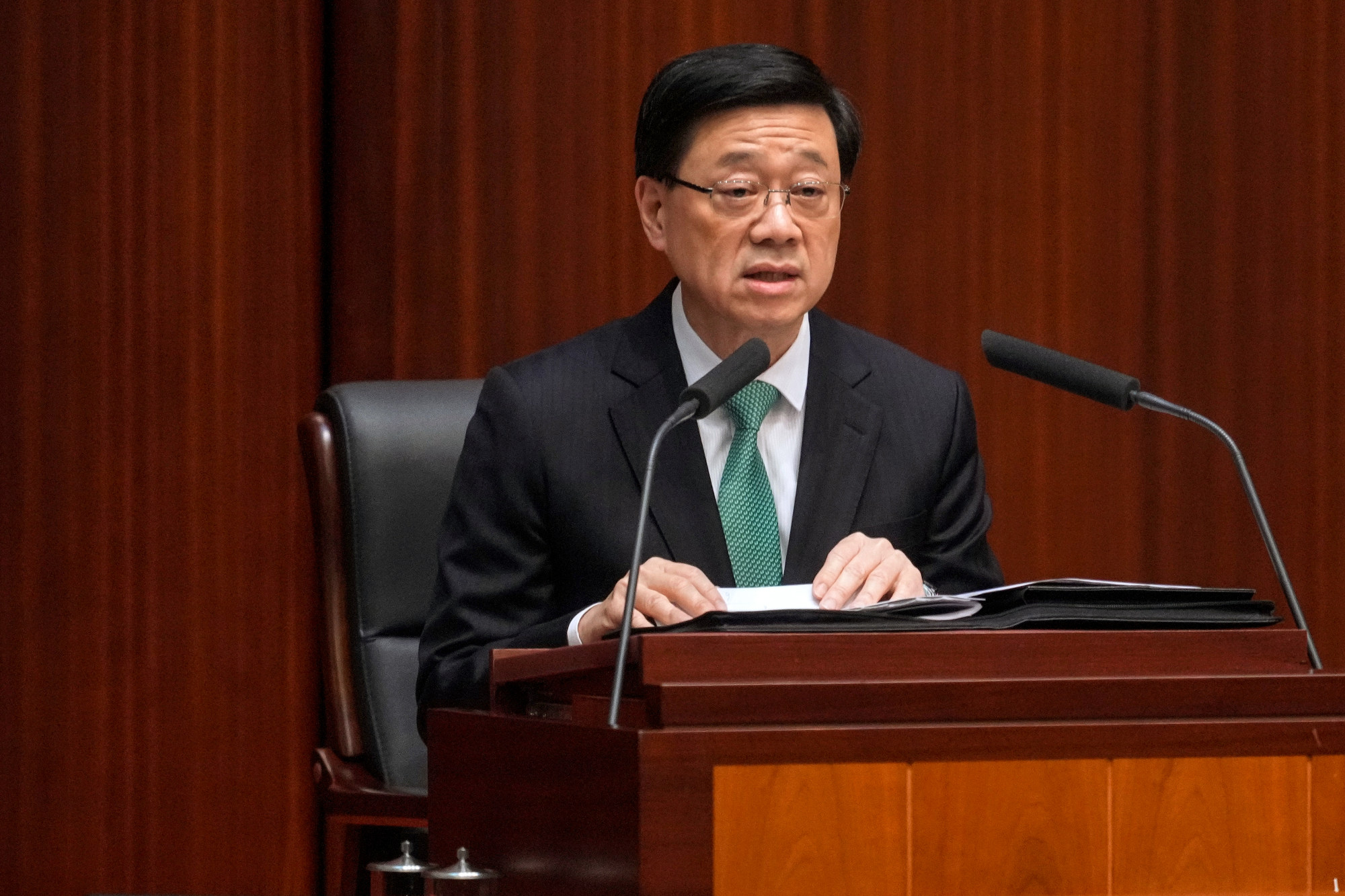Hong Kong’s birth rate policies: proposal to extend allowed storage period for women’s eggs ‘inconsistent’ with government plans, John Lee says

[ad_1]
A proposal to extend the allowed storage period of women’s eggs did not match the Hong Kong government’s plans for boosting the birth rate and was not considered for the latest policy address, the city’s leader on Thursday said.
Chief Executive John Lee Ka-chiu also said the measures he outlined to increase the number of newborns during his speech on Wednesday represented a clear policy direction on behalf of his administration to create ideal conditions for couples to have children.
“Hong Kong’s healthcare policy naturally encourages early childbirth. If a parent’s health is at its best, a healthier next generation is expected. To extend frozen egg period is inconsistent with the related policies, hence it has not been adopted,” he told lawmakers during a Legislative Council question and answer session a day after he revealed the policy blueprint.
John Lee’s measures to boost Hong Kong birth rate still fall short, experts warn
John Lee’s measures to boost Hong Kong birth rate still fall short, experts warn
He said authorities fully supported businesses creating child-friendly environments and policies, and acknowledged that many companies had already made efforts in this area.
“The clear policy direction outlined in the measures to encourage childbirth will foster a shared awareness in society to promote childbirth, which will also benefit businesses. Having more babies is definitely a positive development for society,” he noted, saying it was the first time the government had put forward a clear set of policies to target the birth rate.
Both the New People’s Party and the Democratic Alliance for the Betterment and Progress of Hong Kong proposed extending the permitted storage period for women’s eggs in the city, with the former suggesting it be raised to 30 years and the latter to 55 years from the current 10 years.

Lee called on residents to not only focus on a HK$20,000 (US$2,555) one-off cash handout for parents per newborn, which was among the measures announced.
Others included raising the tax deduction ceiling for interest on home loans or domestic rents from HK$100,000 to HK$120,000, up by 20 per cent for taxpayers whose first child was born on Wednesday or after, until the child reached 18.
Families with babies born from that day onwards will have a better chance to purchase subsidised flats, with 10 per cent of homes for balloting reserved for them. They can also join the normal balloting with other applicants and will be given priority to select homes.
Earlier on Thursday morning, the city leader said government officials had “intense” discussions on whether to retroactively implement fertility incentives, but he ultimately decided to set the date as the same day as the address to send a message that authorities had moved to “act now”.
6 key takeaways from Hong Kong leader John Lee’s policy address
6 key takeaways from Hong Kong leader John Lee’s policy address
He also dismissed the idea that a lack of confidence in the city – especially among parents – had been the main driver of migration, which has been one of the factors linked to a declining population. He said some Hongkongers were reuniting with loved-ones overseas, while others were lured away by talent drives.
“They all have their own reasons to leave or come back. We are seeing them coming back now as our population, having once dropped to just above 7.3 million, is now estimated to be about 7.5 million. I believe their confidence has increased as they have come back,” Lee said in a radio phone-in session.
Baby boom for Hong Kong migrants in UK while births in city hit record low
Baby boom for Hong Kong migrants in UK while births in city hit record low
But he noted that some Hongkongers preferred to give birth in mainland China, where there were “infinite” opportunities, adding authorities would respect parents’ decisions.
Hong Kong’s average number of children born per woman fell from 1.3 in 2017 to just 0.9 last year, when a record low of about 32,000 babies were born.
A government insider said authorities expected the number of births to increase by 20 per cent annually on average over the next three years, or more than 6,000 extra babies in a year.
Additional reporting by Fiona Sun
[ad_2]
Source link





